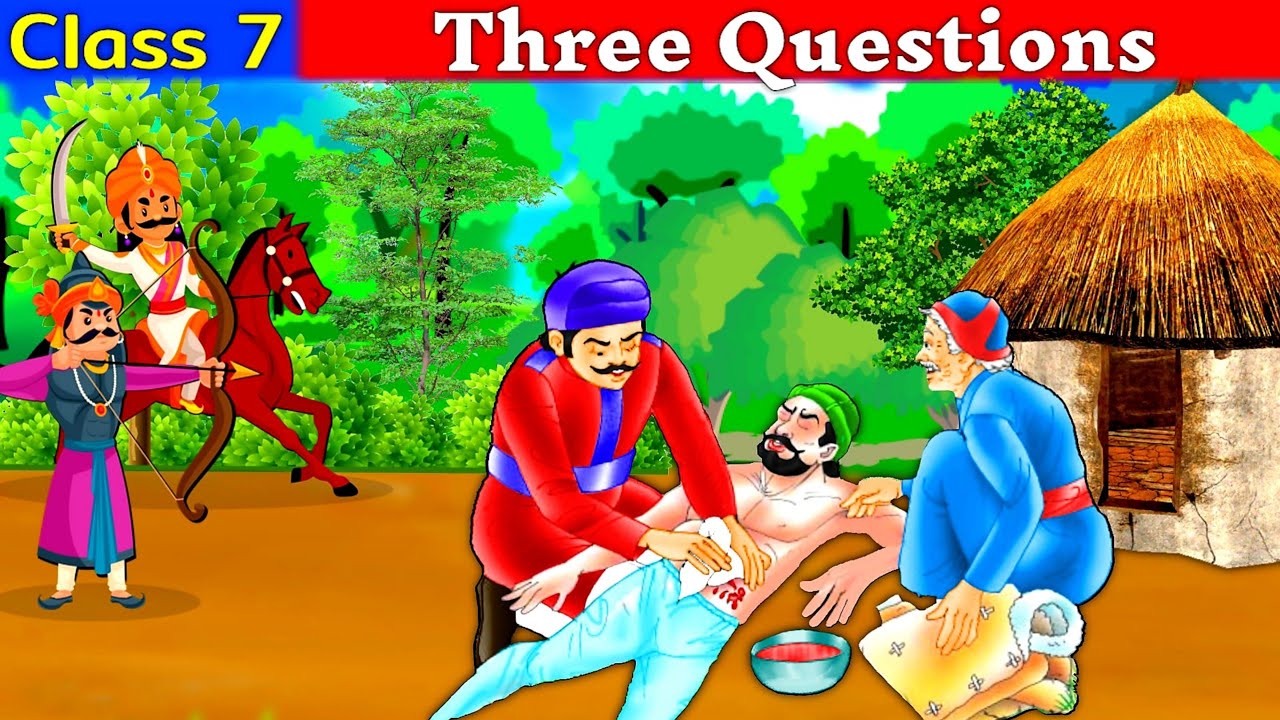
About Lesson
“Three Questions” by Leo Tolstoy
Introduction:
- A king seeks answers to three important questions to ensure he never fails in life.
- The three questions are:
- What is the right time to begin something?
- Which people should he listen to?
- What is the most important thing for him to do?
Key Points:
-
The King’s Quest:
- The king sends messengers throughout his kingdom, promising a large reward for anyone who can answer his three questions.
- Many wise men come to the king, but their answers are varied and conflicting.
-
Answers to the First Question:
- Some wise men suggest preparing a strict timetable.
- Others argue that it’s impossible to determine the right time in advance; one must be observant and do what seems necessary at the moment.
- Some recommend having a council of wise men to help decide the right time.
- Others believe only magicians, who can see the future, can determine the right time.
-
Answers to the Second Question:
- Suggestions include the king’s councillors, priests, doctors, and soldiers as the most necessary people.
-
Answers to the Third Question:
- Responses vary from science, fighting, to religious worship as the most important things to do.
-
The Hermit:
- Unsatisfied with the varied answers, the king seeks the advice of a wise hermit who lives in a forest and only interacts with simple people.
- The king disguises himself in ordinary clothes and visits the hermit alone.
-
The King Helps the Hermit:
- The hermit is digging when the king arrives and asks his three questions.
- The hermit doesn’t respond directly and continues digging. The king offers to help him dig.
- The king repeats his questions after working for some time, but the hermit still doesn’t answer.
-
The Wounded Man:
- A bearded man, wounded and bleeding, runs towards them.
- The king helps the hermit tend to the man’s wounds, and they carry him to the hut.
-
The Bearded Man’s Revelation:
- The next morning, the wounded man reveals that he is the king’s enemy who planned to kill him.
- The man sought revenge because the king had killed his brother and seized his property.
- The man forgives the king and promises to serve him faithfully because the king saved his life.
-
The Hermit’s Explanation:
- The king asks the hermit once more for answers to his questions.
- The hermit explains that the king has already been answered through his actions.
- The most important time is now.
- The most necessary person is the one you are with at the moment.
- The most important business is to do good to the person you are with because that’s our purpose in life.
Themes and Messages:
- Living in the Present: The story emphasizes the importance of focusing on the present moment.
- Compassion and Service: The most crucial actions are those that help and do good to others.
- Wisdom and Understanding: True wisdom comes from understanding and acting with compassion and presence.
Comprehension Check:
-
Why the King Wanted Answers:
- The king believed that knowing the answers to these three questions would help him never fail.
-
Purpose of the Messengers:
- (iv) to announce a reward for those who could answer the questions.
By summarizing the story in these points, students can easily grasp the main ideas and answer questions related to the text. The key lessons about the importance of the present moment, the significance of those around us, and the value of doing good are clearly conveyed.
Join the conversation
